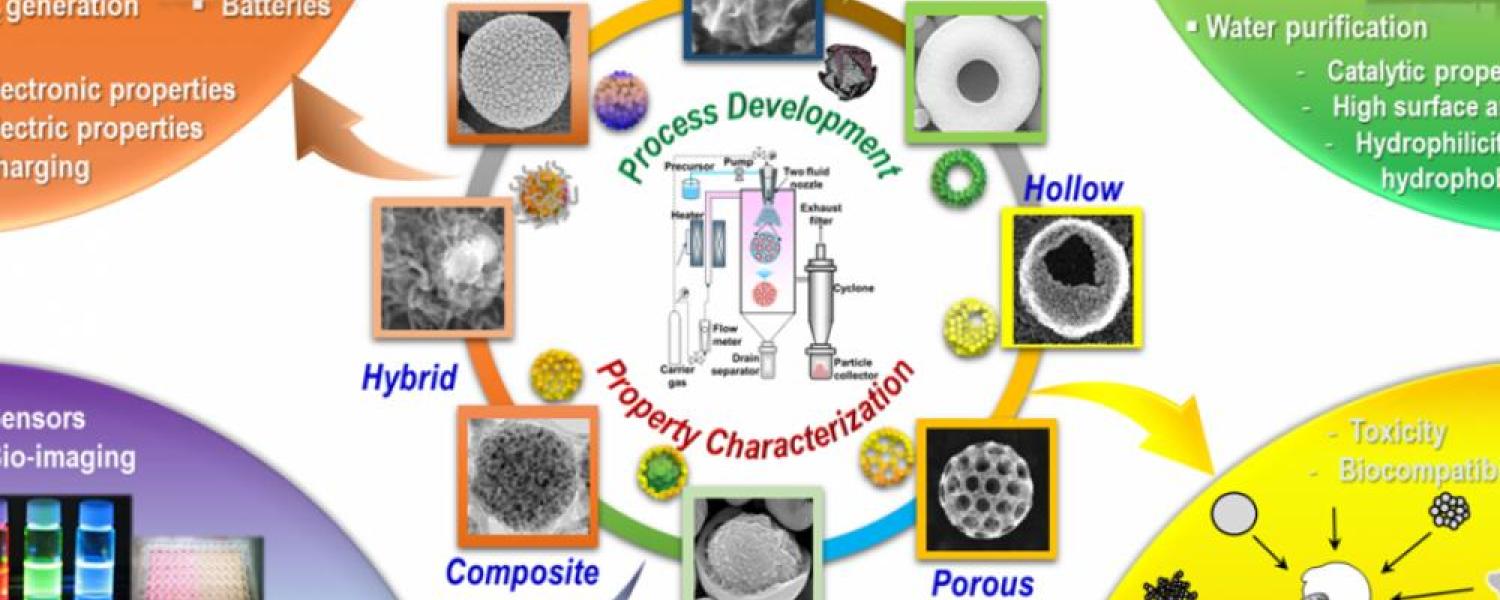
Aerosol-Enabled Nanomaterials
University
Goals
An aerosol, by definition, is a gaseous mixture of particles. Aerosol routes offer many distinct advantages in particles’ design and synthesis such as high rates of direct gas-to-particle conversion, high-purity products, as well as fast, continuous, and scalable processes. These processes are widely used in research and industry since they offer great control and flexibility in tailoring composition, and typically produce particles in one step, saving energy and cost. In a typical aerosol route, the precursors are atomized into fine droplets, which are then introduced into a reactor where evaporation, nucleation, crystal growth and sintering occur to form final particles. All of the above steps can be well controlled and monitored in a continuous manner. The next generation of aerosol-enabled manufacturing processes are expected to produce various structural nanomaterials having superior mechanical, electrical, optical, chemical and even biological properties for applications in energy, environment, sensing, and drug delivery.
The team will be working to develop novel aerosol processes to synthesize various nanoparticles, perform online and offline characterization, toxicity evaluation, and apply them for different applications, such as air purification, water treatment, and medical imaging and therapy. VCU’s School of Engineering has a strong team focusing on aerosol research, covering synthesis, characterization, transport, toxicity evaluation, and modeling. The projects will be designed and advised by the team to offer both fundamental aerosol knowledge and experimental skills.
Issues
Projects will include:
-Develop aerosol processes for continuous synthesis of nanoparticles
-Design and build continuous flow reactors and/or test chambers for photocatalysis
-Simulate aerosol processes (e.g., temperature gradient and flow patterns) using Fluent
-Calculate the evaporation rate and/or particle motion in fine droplets under constant pressure, temperature and air flow
-Synthesize & characterize nanoparticles: inorganic metal oxide nanoparticles with controlled size/shape; organic nanoparticles with controlled surface chemistry for photocatalytic applications
-Develop aerosol processes for continuous synthesis of nanoparticles
-Design and build continuous flow reactors and/or test chambers for photocatalysis
-Simulate aerosol processes (e.g., temperature gradient and flow patterns) using Fluent
-Calculate the evaporation rate and/or particle motion in fine droplets under constant pressure, temperature and air flow
-Synthesize & characterize nanoparticles: inorganic metal oxide nanoparticles with controlled size/shape; organic nanoparticles with controlled surface chemistry for photocatalytic applications
Desired Majors
Mechanical Engineering
Chemical and Life-Sciences Engineering
Biomedical Engineering
Electrical Engineering